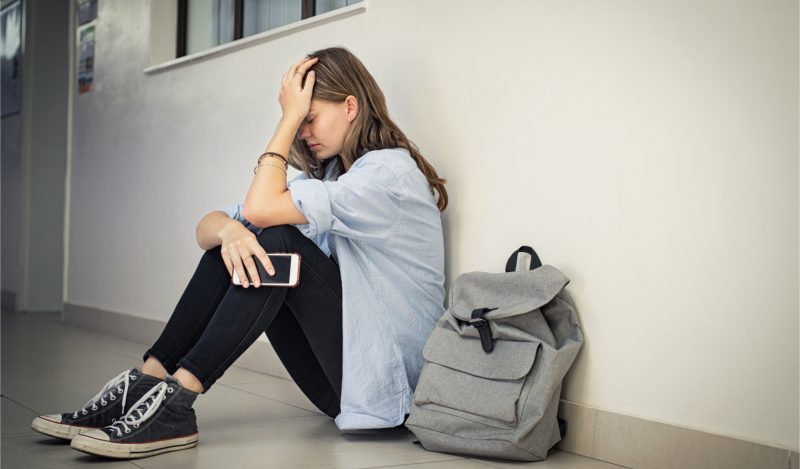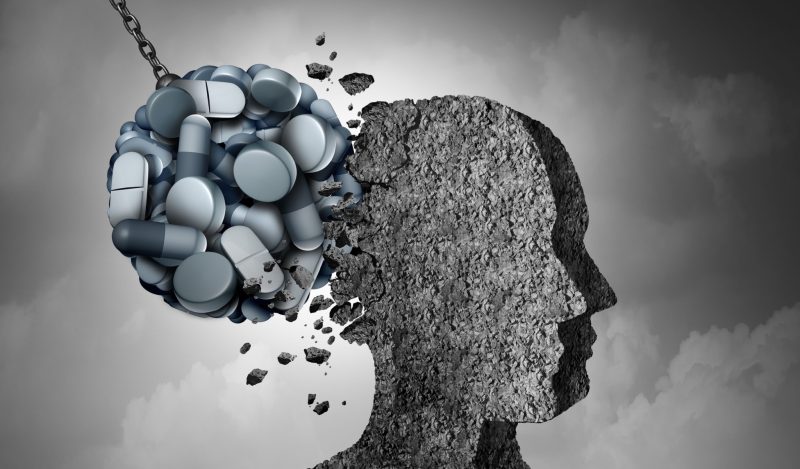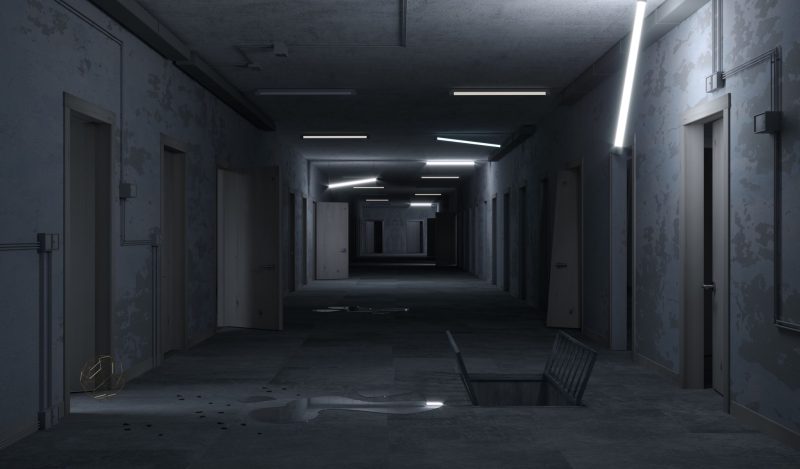There’s a health crisis on college campuses and it’s not Covid-19.
As the fall 2020 semester approached, there were warnings of a mental health crisis among college students. Rather than focusing protection on vulnerable college students, politicians and college administrators imposed severe restrictions, exacerbating mental health concerns.
A year later, as mental illness and suicides are reported, leaders continue spending millions on restrictions for COVID-19 while only paying lip service to the mental health crisis.
As a college instructor, I have seen COVID-19 restrictions seriously impact students. During the fall 2020, a student contacted me reporting inability to attend class because her roommate tested positive for Covid-19.
After several emails to college leaders, we discovered her required quarantine was 24 consecutive days, even after she produced two negative tests. The mandated quarantine accounted for nearly a month of her life; 20% of her semester.
While quarantine rules are less severe in 2021, public health and college administrators still require quarantine for 5-7 days if a student is a “close contact” of someone who has tested positive. This year, several of my students were forced to endure week-long quarantines, two or three times. Leaders should stop forcing such severe restrictions on students as they come with grave mental health costs.
Several reports served as warning signs to politicians and college administrators during the summer and fall of 2020. Active Minds, a national non-profit organization with a stated mission of raising awareness about mental health and suicide in young people, indicated pandemic restrictions were exacerbating mental illness.
The organization published a survey of college students’ mental health in September 2020 where over 75% of respondents reported their mental health had worsened since the pandemic began. When asked in what ways their mental health had been impacted, 76% reported “loneliness or isolation.” When asked what has been the “most stressful” the top response from students was “feeling disconnected.” This survey was consistent with an August 2020 report from the CDC showing “Mental health conditions are disproportionately affecting specific populations, especially young adults…”
Even as the warning signs grew, politicians and college administrators prioritized COVID-19 mitigation over the mental health of their students. Therefore, this year’s wave of mental illness should come as no surprise. Recent news of student suicides at Dartmouth College, West Virginia University, and St. Louis University in addition to several widely publicized deaths at University of North Carolina finally have leaders talking about the problem. A bill was even recently introduced in Congress that aims to put together a commission to study mental health among college students.
The bill, however, is a mere window dressing to hide the negligence of leaders who spent millions on COVID-19 mitigations while the mental health of students continued to deteriorate. Politicians and college administrators effectively isolate vulnerable people (already at high risk for developing mental illness) from friends and family for days or weeks at a time. It is well documented that college students are vulnerable to developing mental illness.
Psychiatric hospitalizations for college students have risen 300% over the past two decades and thousands die by suicide each year. The average age of onset for chronic mental illness is mid-teens to early twenties, and the second leading cause of death for this age group is suicide. Mental illness and suicide among college students is a known health issue. It may be more helpful to introduce a bill to study the motives and decisions of politicians, university administrators, and other leaders who impose such harmful restrictions and then bully students when they do not comply.
The actions and words of university leaders throughout the pandemic have been alarming. College students who failed to comply with restrictions were publicly shamed, described as “selfish” or “brazen,” and their behaviors are blamed for the health of their entire community. Prominent figures and news outlets dismissed restrictions as “inconvenient” and even called them “small sacrifices.”
Some university administrators have echoed this sentiment, manipulating students by telling them to comply is to be altruistic. Leaders’ words and policies have led to shame, isolation, and disconnection which all exacerbate mental illness and suicide. Responsibility for the current mental health crisis on college campuses partially falls on the leaders who made and enforced such serious restrictions.
Threatening emails, door checkers, mandated testing, long quarantines, Plexiglas barriers, increased cleaning supplies, and mobile tracking apps have all been prioritized over the mental health of students. This is akin to building levees and dams in the desert, while ignoring the flooding coastline. Students are facing far more serious risks from mental illness than they are from COVID-19. While the virus may have been new in 2020, mental illness and suicide risks among college students were not. College administrators must focus attention and prioritize resources where it matters.
Students and families need to hear that there is hope for recovery. Mental illness is a health issue that can be treated with medication and counseling. Causes of all illness, including mental illness, are not solely due to any personal failure but can be exacerbated by bad policies, low resources, and other social structures.
To those who are suffering, do not blame yourself. Mental Health concerns are treatable, and recovery is possible! You are important, your mental health is important, and no matter what message you receive from your college or university, you do not deserve to be alone.
If someone is experiencing an emotional crisis or thoughts of suicide, free, 24/7, confidential services are available. For emotional support specifically related to COVID-19 call the Disaster Distress Helpline (800-985-5990), or text TalkWithUs to 66746. For those experiencing a suicidal crisis call the National Suicide Prevention Lifeline (800-273-8255), or text the Crisis Text Line (text HOME to 741741). For those who identify as part of the LGBTQ community call the TrevorLifeline (866-488-7386) or text START to 678-678. For Veterans who are in crisis call the Veterans Crisis Line (800-273-8255 and press 1) or text 838255. For frontline workers with anxiety, stress, fear, isolation, or other difficult emotions text FRONTLINE to 741741.
Published under a Creative Commons Attribution 4.0 International License
For reprints, please set the canonical link back to the original Brownstone Institute Article and Author.









